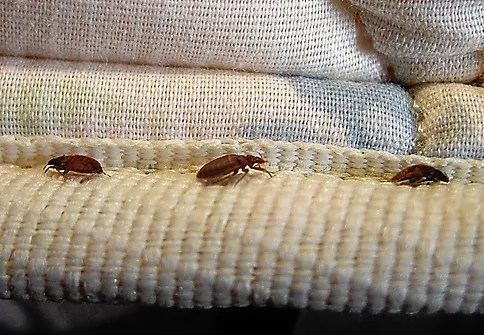Navigating Co-op Pest Control Responsibilities: Local Laws in New York City
Navigating Co-op Pest Control Responsibilities: Local Laws in New York City. Living in a cooperative (co-op) housing arrangement has its perks, but it also comes with unique responsibilities—especially when it comes to pest control. In New York City, co-op boards and shareholders must adhere to specific local laws to maintain habitable living conditions. Here’s a breakdown of what you need to know about co-op pest control responsibilities under NYC regulations.
Warranty of Habitability
Under New York State’s Warranty of Habitability, all residential buildings—including co-ops—are required to provide safe and livable conditions for their residents. This means that co-op boards are responsible for addressing pest infestations and ensuring that units are free of pests like bed bugs, rodents, and insects. If a co-op fails to maintain habitable conditions, shareholders may have legal recourse to compel the board to take action.
Local Law 55 of 2018
Local Law 55 of 2018 mandates that owners of buildings with three or more apartments, which includes co-ops, must keep their units free of pests and mold. The law emphasizes the use of Integrated Pest Management (IPM) practices, which involve preventing infestations through regular maintenance, such as sealing cracks and repairing leaks, rather than solely relying on chemical treatments.
Integrated Pest Management (IPM)
IPM is a sustainable approach to pest control that focuses on long-term prevention and management. Co-op boards are encouraged to adopt IPM practices, which include:
- Regular inspections to identify and address pest entry points.
- Maintenance and repairs to eliminate sources of food, water, and shelter for pests.
- Education and communication with shareholders to ensure proper sanitation and pest prevention practices.
Proprietary Leases
Each co-op’s proprietary lease may include specific clauses related to pest control responsibilities. In some cases, the financial burden of extermination may fall on individual unit occupants. However, if an infestation affects multiple units or common areas, the co-op board is generally responsible for coordinating and financing the extermination efforts.
Shareholder Responsibilities
Shareholders also play a crucial role in pest control. They are typically required to:
- Report infestations promptly to the co-op board or management.
- Comply with extermination efforts, including preparing their units for treatment.
- Maintain cleanliness and take preventive measures to avoid attracting pests.
Legal Recourse
If a co-op board fails to address a pest infestation, shareholders may have several options for recourse:
- Informal resolution: Shareholders can first attempt to resolve the issue through communication with the co-op board.
- Mediation or arbitration: Many co-op bylaws include provisions for mediation or arbitration to resolve disputes between shareholders and the board.
- Legal action: If informal methods fail, shareholders can take legal action to compel the co-op board to fulfill its obligations under the Warranty of Habitability and Local Law 55.
Conclusion
Pest control in co-op housing requires a collaborative effort between the co-op board and shareholders. Adhering to local laws and regulations, such as the Warranty of Habitability and Local Law 55 of 2018, ensures that all residents can enjoy a safe and pest-free living environment. By understanding their rights and responsibilities, co-op residents can effectively address pest issues and maintain a harmonious living space.
Speak With a New York Bed Bug Attorney
At The Law Offices of Effie Soter, P.C., our New York Bed Bug Attorneys have been helping people affected by bed bugs. And we are dedicated to fighting for the compensation you deserve. Bed bugs are a serious issue. Our experience and commitment make us the trusted source for legal help relating to bed bugs.
If you’ve been exposed to bed bugs or if you have any questions, our New York Bed Bug Injury Attorneys will help you through the process of filing a claim. We will fight for your right to compensation. Call and speak to one of our New York Bed Bug Injury Attorneys at 646-504-7384 for a free initial consultation or via our contact page to learn more about your rights. Let us help you obtain the best outcome.

